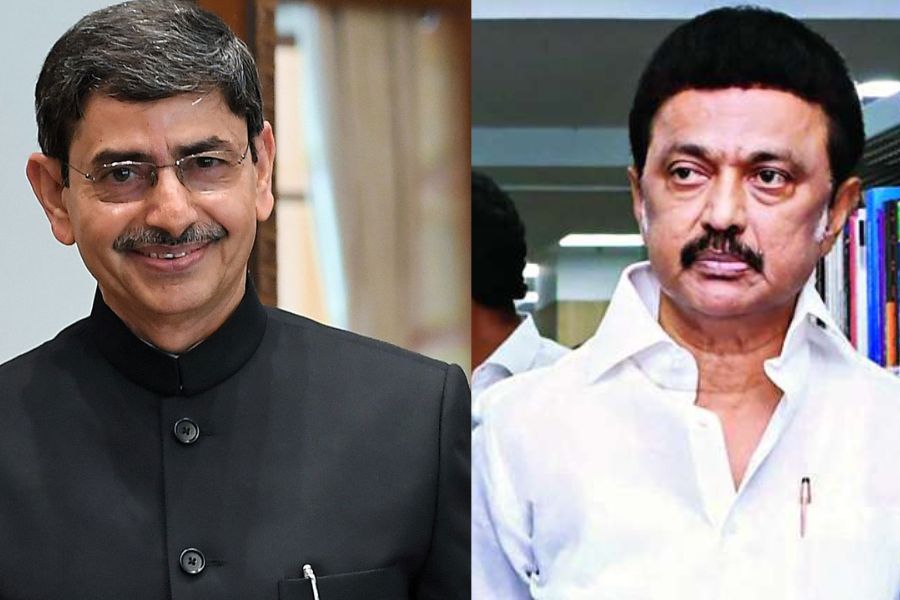From UPSC perspective, the following things are important :
Prelims level: Azad Hind Government
Mains level: need for constitutional authorities to exercise restraint

Central Idea:
The article discusses the controversial statements made by the Tamil Nadu Governor, R.N. Ravi, regarding the factors leading to India’s Independence. Despite his background in physics and a career in the Intelligence Bureau, Mr. Ravi expressed views on historical events, specifically downplaying the impact of the Quit India movement and attributing British departure to factors like Netaji Subhas Chandra Bose’s actions and the Naval Mutiny.
Key Highlights:
- Governor R.N. Ravi, in breach of the expected reticence of constitutional authorities, delves into historical interpretations related to India’s Independence.
- Ravi suggests that the Quit India movement had minimal impact on the British decision to leave, attributing it more to Netaji Subhas Chandra Bose’s Azad Hind Government and the 1946 Naval Mutiny and Air Force Rebellion.
- Ravi’s views are reportedly based on Intelligence Bureau files, raising questions about his in-depth study of India’s national movement.
Key Challenges:
- Constitutional authorities, like Governors, should refrain from publicly expressing opinions on historical matters unrelated to their duties, especially without comprehensive knowledge.
- Ravi’s assertion regarding the Quit India movement and the reasons for British departure may stir controversy and be seen as an attempt to rewrite historical narratives.
Key Terms/Phrases:
- Quit India movement
- Intelligence Bureau (IB)
- Azad Hind Government
- Naval Mutiny and Air Force Rebellion
- Netaji Subhas Chandra Bose
- Mahatma Gandhi
- Indian National Army (INA)
- Constitutional authority
Key Quotes:
- “The Quit India movement made little impact on the British decision to leave India.” – Governor R.N. Ravi
- “The British left because they felt ‘insecure’ after the ‘Naval Revolt and the Air Force Rebellion.'” – R.N. Ravi on British Prime Minister Clement Attlee’s alleged statement.
Anecdotes:
- The article mentions the lawyer Bhulabhai Desai, Jawaharlal Nehru, and others defending INA officers at their court martial, emphasizing the united front among leaders despite ideological differences.
Key Statements:
- Constitutional authorities, like Governors, are expected to maintain reticence and avoid public expressions of opinions on historical events.
- Mr. Ravi’s views on the Quit India movement and the reasons for British departure may not align with historical consensus.
Key Examples and References:
- Reference to the impact of INA trials on British rule withdrawal, as noted in Kailas Nath Katju’s unpublished biography.
- Mention of historical leaders’ admiration for Netaji Subhas Chandra Bose, despite ideological differences.
Key Facts/Data:
- Mr. Ravi’s background in physics and a career in the Intelligence Bureau.
- INA trials and their impact on public sentiment, as highlighted in Kailas Nath Katju’s biography.
Critical Analysis:
- The article criticizes Mr. Ravi for venturing into historical interpretations without a detailed study, emphasizing the need for constitutional authorities to exercise restraint.
- It questions the validity of Ravi’s claims regarding the Quit India movement’s impact and the factors influencing the British decision to leave.
Way Forward:
- Constitutional authorities should adhere to their roles and avoid making public statements on historical events.
- Encourage informed discussions on historical matters and ensure that statements align with widely accepted historical narratives.
Get an IAS/IPS ranker as your 1: 1 personal mentor for UPSC 2024
